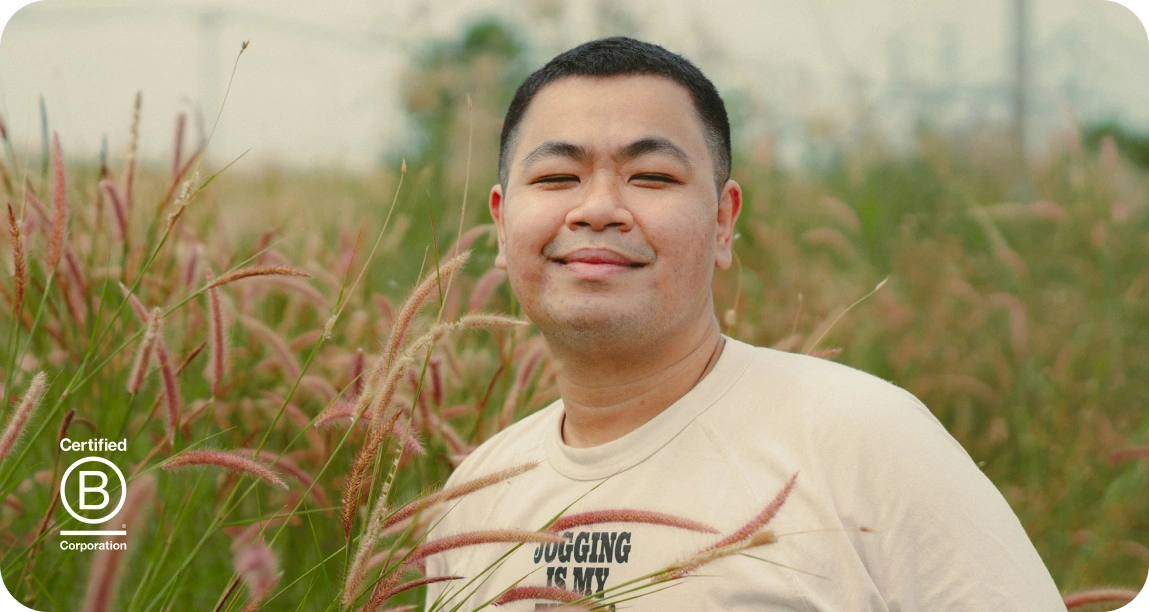A free training program for training CS reps with the skills, tools, and knowledge to delight customers and resolve issues.
Geraldine Starke is the founder of Refarmd a new plant-based milk subscription service, sourced from ex-dairy farmers.
They work with farmers to make the transition from cows' milk to the production of plant-based milk, and at the same time convert their farmland into animal sanctuaries.
We interviewed Geraldine to get to know the service a bit more and how the idea was born.
https://youtu.be/pksyGCKmLZc
Geraldine, tell us how did it all start?
It all started because I became vegan ten years ago. I'm initially from the hospitality industry. I studied business management in the hospitality industry in France, which is not a very vegan-friendly environment.
At some point, because we're traveling with my husband, I became a self-taught software developer and started working as a freelancer for different companies around the globe.
But I always wanted to do something more in line with my values and especially find a way to build sustainable sanctuaries. Right now they depend on lots of volunteers and donations and they are also very aware of what was happening in the farming industry.
At that time there was really this war happening in France, specifically between farmers and vegans. That struggle just got me thinking about, how could we make it work?
And I just thought, well, farms could be the perfect places for sanctuaries, actually, because they already have the land they have the animals they love to care for those animals.
They have everything that could make it work for a sanctuary. But obviously, they need another business model. They need to get an income from somewhere else if they're not taking it from the animals anymore.
And that's really how it started. And then I thought about, well, it's great. If I'm working with dairy farmers, they just continue doing milk, but just not from animals anymore, plant-based milk.
What is the issue you're trying to solve?
So, as we know, animal agriculture is the leading cause of the climate crisis, the recent reports that even say it's almost 50% now, but it's also not sustainable for the farmer's families actually especially small to mediums they want they're really struggling there.
And as consumers, our main solutions, even those who move to a more plant-based diet are just a small part of solving the problems. Also, because those products usually are very heavily processed come from around the world are not the most sustainable, even if they're better, they're not more sustainable and they still, come in plastic packaging.
So that's a big critic we get from plant-based food is that it's not natural.
It's lab-made, cell-made. And that's where we are really heading right now. More and more. So I really wanted to show that it's also possible to have really fresh, natural whole foods, basically plant-based food that is great for the environment, for the animals, and for people.
And by doing that, we didn't want to create just another plant-based food company. The first year was great because it was just basically just me thinking all through, talking to a lot of people, farmers, ex farmers, and people in these industries in general. That was a great time, I would definitely do that again.
A Smarter Way to Build Your Global Team
What were the next steps?
We started too quickly turn into the real active transition. We worked with three farms in two different countries in the middle of a pandemic.
Most of the team members were part-time, not experts in the field. So that really made it complicated. And on my side I was a bit naive as well on some aspects like it's easy to make plant-based milk, it's easy to get machinery and things like that or it's easy to distribute. But that was not the case.
What are the main learnings from this experience?
I would definitely try to have a much more clear idea of the model and really go through to even test those much more before really starting because obviously, it costs us a lot of money and time and we could have avoided a lot of those struggles and especially starting small, step by step, and not trying to do all the things at once and too much, too much because you're excited, you want to get it going and you also have people on that side excited that want to work with you and do the things.
That's how you can easily fail. But after that, I got a lot of people getting in touch and just by talking with people I started to see, ok, this person could be interesting...
To be really honest initially, the main point was the cost. The business was self-funded until now I could not just make an ad and say, okay, I need a food scientist or something and try to hire an expert in that.
What are the traits youre looking for when youre in the process of hiring a new collaborator?
We like people that are very passionate and ready to work, knowing that in the beginning, you don't have a very specific role.
You will do lots of different things. You might not have the best salary in the market, but you're really working towards a great project and you're part of it since the beginning.
That's really how we were doing it. I really want to build a team and culture around the whole project in the sense of the whole mission we have. So I really want people that are passionate that feels really a good solution, not just another job or another work.
I'm not so much looking into degrees and things like that, especially because what we're doing is very out of the box. I really like critical thinking, I like people that can think by themselves, and when facing a problem, they come and try and find a solution.
Work for Impact supports brands and organizations for a better world
The story of Geraldine and the transition to plant-based milk is truly fascinating, if you want to learn more stories from startups in the impact space, check the series: Work for Impact Meets.
We believe in setting goals that benefit everyone, not just ourselves. By working with socially and environmentally responsible organizations and nonprofits, we want to promote projects that have a positive impact on the world as a whole. At Work for Impact, a job is not just a job. It is the beginning of a larger journey that will unlock future potential and provide meaningful opportunities worldwide. Sign up for free and start discovering new ways to make an impact.



